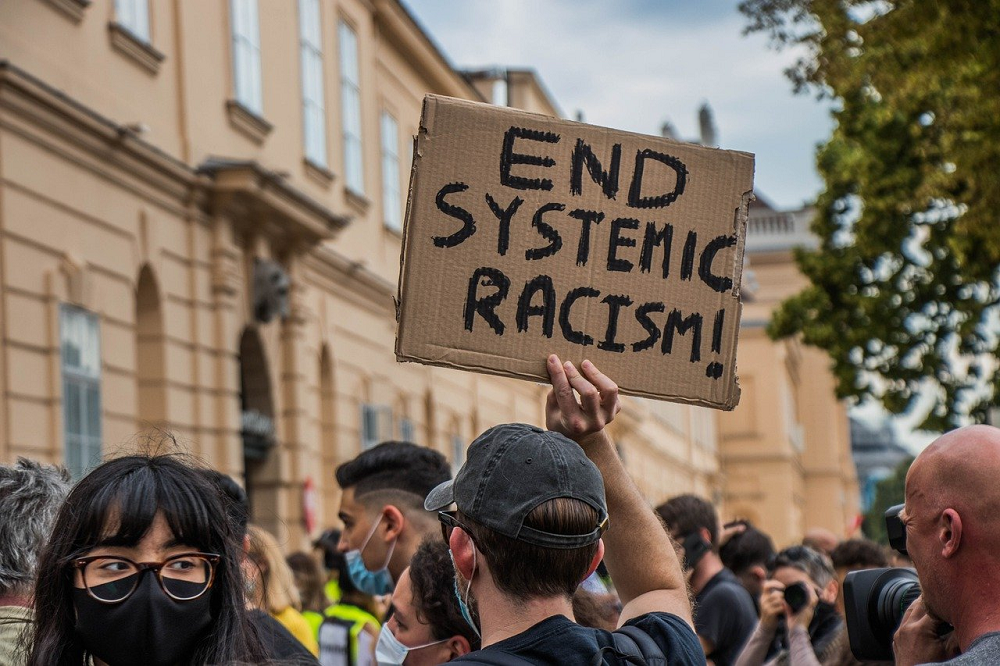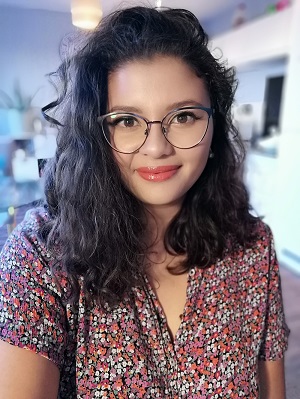Is Wales ready to listen to those who suffer racism every day?

Nia Morais
This article is also available in the Welsh language here.
I still haven’t watched the video of George Floyd’s murder. I don’t know about you, but I don’t think I’m ever going to watch it – or share it online.
We live in an age where a new murder video is going viral every day, and I don’t want to add to my own trauma. I don’t want to risk the chance of someone else seeing the video on their timeline and having to deal with that trauma themselves.
Not to mention the fact that an innocent man was killed in such a horrific way. George Floyd doesn’t deserve to have the video of him in his final moments go viral. He didn’t deserve to be sacrificed for the anti-racism cause.
He was innocent – he was going to the shop. But even if he had been guilty of some crime, he didn’t deserve to die for it.
As a mixed-race black person, it was good to see so much support on social media for the black community in the wake of George Floyd’s murder. But as time passed, I realized that many people who hadn’t experienced racism weren’t sure how to move forward in terms of anti-racism.
There was a lot of superficial support, but not much change – as people thought, “that’s it, I’ve posted a black square, that’s enough anti-racism for one day”.
People might not want to make a mistake, or cause more problems, but more definitely needed to be done. The discussions on social media had the same tone as in 2014, following the murder of Michael Brown in Ferguson, Missouri. There was a lot of discussion about how to make George Floyd’s the last case of violence by the police, but people were saying the same about Michael Brown in 2014.
At a systemic level, what has changed since 2014? Nothing much, in my opinion. What then does this tell us about stopping racism? Well, it’s going to take more than posting a black square. You need more than body cams, more than sensitivity training.
The system needs to change completely, from the ground up. A new system is needed.
Actions
Obviously, I’m not the expert. There are many people out there who have better ideas about how to change this violent system. I’m grateful for the opportunity to write about this topic, but of course everyone who experiences racism needs to be listened to get an idea of how to make the change that is needed.

The good thing is that anti-racism groups like BLM Wales are starting to get the attention they deserve for the important work they do. But change will be extremely difficult without getting everyone on board – that is, even the people who are never going to experience racism.
And I’m not just thinking about the US – the deaths of Christopher Kapessa in 2019, and Mohamud Hassan and Mouayed Bashir early this year proved (to those who needed the evidence) that there are big problems we need to tackle in Wales as well.
In my view, the difference between racism in Britain and racism in the USA is that racism in the UK hides behind a veneer of politeness. It’s a slyer racism, that can make you feel that there’s something wrong with you for being affected by it. But it is there.
Because we live in a society where everything is visual, and everything is performance, I think it’s important that we put the emphasis on actions rather than performative support. No more black squares, no more photoshoots in the midst of protests.
What we need is to put our energy into the organization, in a way that is right for us. Not everyone can march, but they also need to give money to people in need, sign petitions, and things like that. As well as discussions with the IOPC and lobbying to change laws, there is also a need to counter racism every day.
That is, if something racist is happening in front of our eyes, it needs to be made clear that it is violent and wrong. Harmful comments need to be pointed out if someone is being racially abused. You need to be prepared to film if the situation is going to turn violent, to make sure that no one gets away with murder again.
Important
Racism connects to all communities. It goes hand in hand with homophobia and transphobia, and can affect everything, from health to laws to education.
What is important is to listen to different experiences, and then seek the views of the people who experience racism every day, to find the best way to help them.
I am aware that I experience racism in a different way to a Muslim person, for example, or a dark-skinned person, because I am mixed race. I am also aware that black disabled people experience racism in the most horrific ways.
So my experiences are not ‘one size fits all’ – my view on how best to be anti-racist is not the final opinion. There are thousands of people out there that we need to listen to – and the most important step we can take now is to make sure we listen to them.
But is Wales ready to listen – and face up to the truth?
Support our Nation today
For the price of a cup of coffee a month you can help us create an independent, not-for-profit, national news service for the people of Wales, by the people of Wales.






